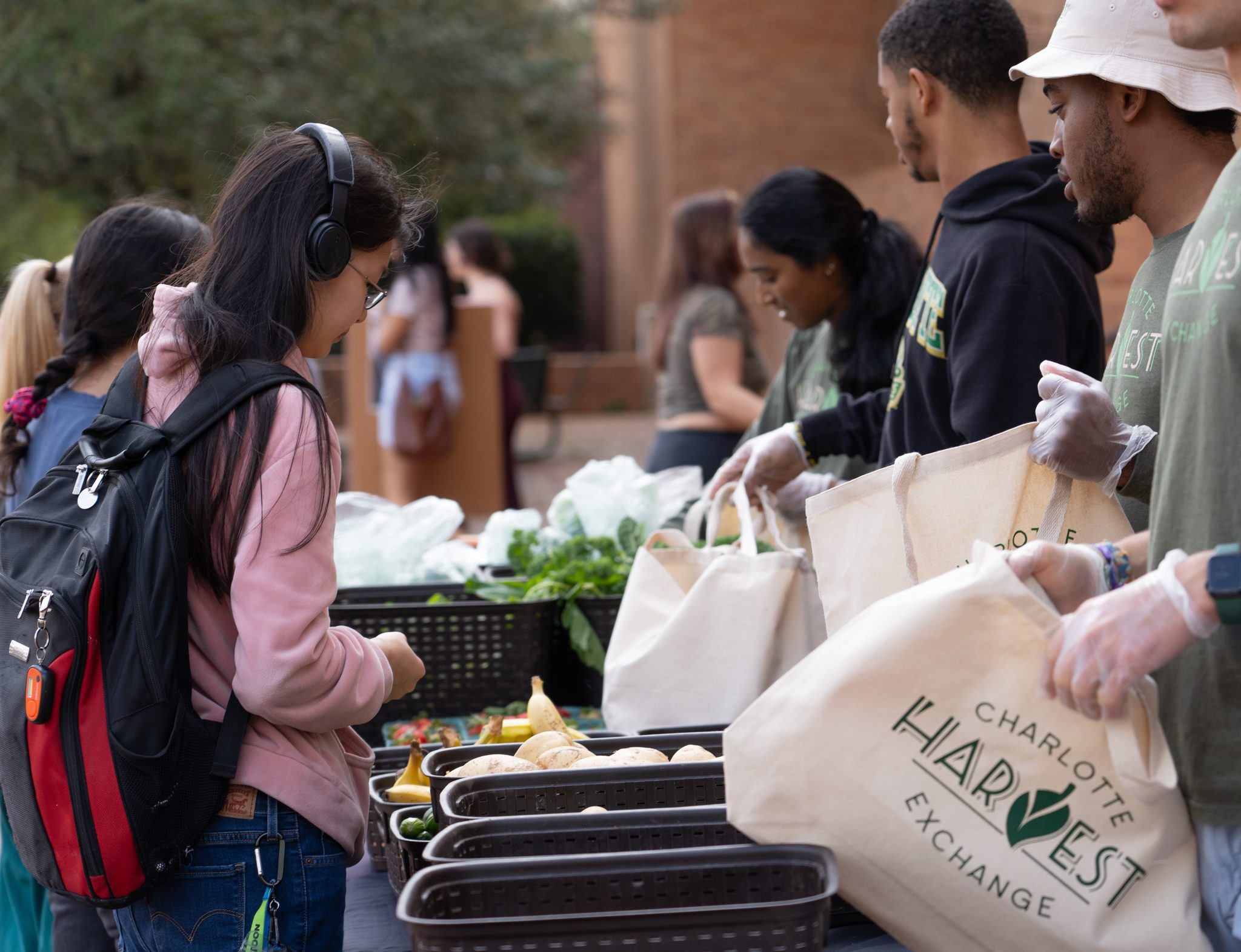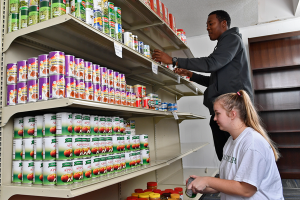Food

food
Food and dining at UNC Charlotte are large operations critical to the well-being of the campus community. Campus residents, commuters, and visitors expect choice, quality, and nutrition. Increasingly, the campus community desires lower impacts to the environment and ways to address hunger on campus and in Charlotte.
In 2022, Auxiliary Services created a video and website that provide an overview of sustainable dining operations on our our campus.
CERTIFIED GREEN RESTAURANTS
In 2019 the two largest dining facilities on campus were certified by the Green Restaurant Association. The project to certify these restaurants was a collaboration between student funding from the Charlotte Green Initiative, Chartwells staff, and a graduate student project. Both the South Village (SoVi) Dining Hall and Social 704 were awarded a 3-star rating on a comprehensive assessment of over 100 dimensions of responsible food sourcing, nutritional diversity, waste reduction, and conservation of energy and water. To achieve this rating, both locations are styrofoam-free, compost or recycle 90% of waste created, and serve over 40% vegetarian main dishes.
SoVi is also distinguished for earning Three Green Globes from the Green Building Initiative for design and construction in 2014.

CHARTWELLS
Chartwells is the dining contractor for dining operations on campus. Their corporate goals include creating a more sustainable food system and a healthier planet for future generations. Chartwells also maintains several other initiatives/accreditations to contribute to the health and wellbeing of our community. For more information, see their sustainability website for campus dining.
FOOD SECURITY

The Jamil Niner Student Pantry continues the services started in 2014 to assist UNC Charlotte students facing food insecurity. They work with volunteers and donors to provide food and to educate the campus and community about food insecurity and well-being. The pantry collaborates with Dining Services and Chartwells on a Food Recycling Program to package, store, and distribute excess food from the dining halls. They also support a national Swipe Out Hunger Program that accepts student meal plan donations and distributes the dining hall meal credit to students in need.
WATER
All occupied university buildings have water fountains to provide staff and students with ensure access to safe drinking water at no cost. Of the over 500 water fountains on campus, over 100 have been upgraded to include hands-free water bottle fillers. Bottle fillers are available in academic buildings, all residence halls, and recreational facilities.